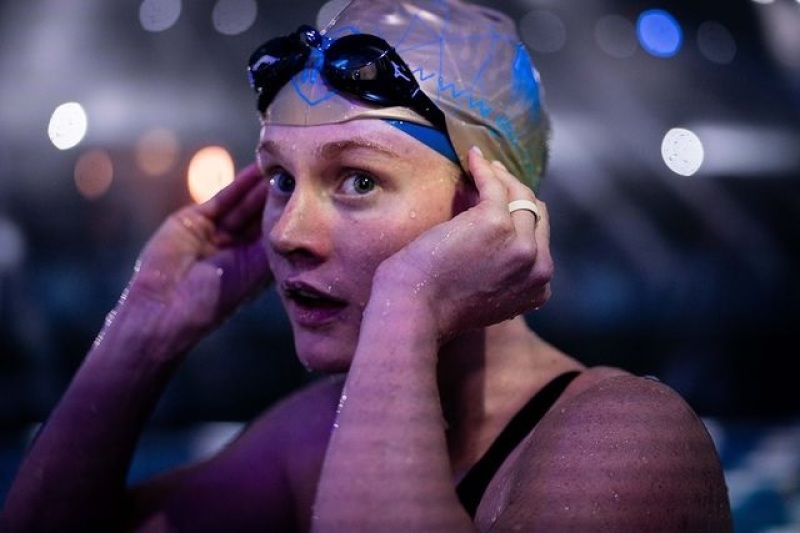
American swimmer Erika Brown, who took home silver and bronze medals at the 2020 Tokyo Olympics that were held in 2021 due to COVID, took to social media this week to denounce the inclusion of transgender athletes in women's sports, arguing that "it's time to start standing up for women's sports."
The swimmer did not specifically mention any transgender athlete, but her opinion comes after male-born yet female-identifying trans athlete Lia Thomas broke several women's swimming records in December.
According to the Christian Headlines, Brown is raising a concern that others have already spoken about, that the National Collegiate Athletic Association (NCAA) allows male-born transgender women to complete after one year of testosterone suppression treatment, despite maintaining many other factors that make the human male body more advantageous to women when it comes to strength and speed.
"I believe that we are all God's children, and we are called to love one another. I don't want to create any hate, only speak up for what is right," Brown, who is a Christian, began her Instagram Story, as per SwimSwam.com.
"We cannot allow transgender females to compete against biological women," Brown argued. The two-time Olympic medalist explained that a biological male goes through puberty and despite having transitioned, "still has the physiology of a male."
"A few years of testosterone blockers and estrogen doesn't change the fact that [he] will have more powerful muscles, a larger heart and greater lung capacity than a biological woman," Brown remarked. "It's time to start standing up for women's sports before we lose what so many before us have fought for. I hope that this can help inspire others to speak up."
Brown's statements are in fact supported by new research. Researchers from Marquette University, Duke University and the Mayo Clinic found a 5% difference across the board between Thomas' best times as a female compared to the transgender athlete's best times competing as a male. Thomas was known to have competed as a male swimmer before the trans athlete began to identify as female. To compare, biological males competing in elite tournaments are about 10% to 15% faster than biological women in short events and 7% to 10% faster in long-distance events.
Brown isn't the only Olympic athlete who is speaking out against the inclusion of biological males in women's sports. Nancy Hogshead-Makar, who won four swimming medals for the U.S. during the 1984 Olympics and the chief executive of Champion Women told the Washington Post that because the topic of transgenders in women's sports is "very uncomfortable" for a lot of people, the NCAA and other sports organizations "took the lazy way out" and just decided to "put them in the women's category."
Across the U.S., the fight to support women's rights in sports and other arenas has just begun. According to NBC News, at least seven states have proposed laws that will limit transgender participation in different sectors of the community to preserve women's rights. The report said that Republican lawmakers in Arizona, Alabama, Indiana, Kentucky, Oklahoma, New Hampshire and South Dakota have introduced up to nine measures that limit transgender individuals' ability to participate in women's sports or use women's bathrooms.
"If competitive sports are made to be fair, there is a place for everyone to compete according to the biology they were born with," South Dakota Republican state Rep. Rhonda Milstead remarked.

























